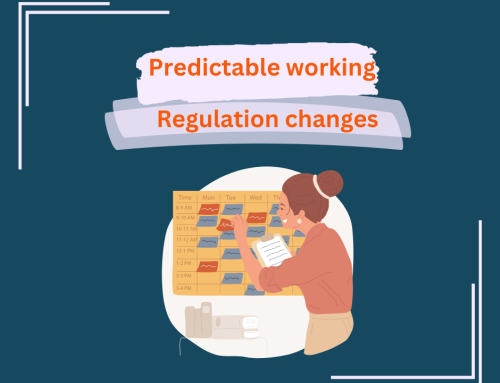In a typical month 58% of British adults make a charitable donation, so it’s more than likely you’ve given to a charity in the last month. But, have you considered giving your time and skills too? This week, as we celebrate #TrusteesWeek, charities across the nation are encouraging us to consider getting on board…their board!
What is a trustee?
Trustees are the people in charge of a charity, who play a vital role, volunteering their time and skills to work together to make important decisions about a charity’s work.
What does a trustee do?
It is a trustee’s responsibility to:
- make sure that the charity is carrying out the purposes for which it is set up, and no other purpose.
- ensure that the charity complies with its governing document and with charity law requirements and other laws that apply to the charity
- act in the charity’s best interests.
- manage the charity’s resources responsibly.
- act with reasonable care and skill.
- ensure that the charity is accountable.
A trustee generally needs to have the time and flexibility to attend a meeting every month or so. It’s important to discuss the time, location and frequency of meetings before you commit, to ensure that you’ll likely be able to attend. Does the charity have any further expectations about service on sub-committees, or attending events or occasions throughout the year?
Further details can be found in the government’s Essential Trustee Guide.
Who are trustees
There are around 194,000 charities in the UK, and just over 1 million trustees. Trustees must be at least 18 years of age (or 16 for a charitable company or CIO) and not disqualified as a director or made bankrupt. Those who have previously been removed as a trustee of any charity by the commission (or a court) because of misconduct or mismanagement and those who have an unspent conviction for an offence involving dishonesty or deception, such as fraud, are also ineligible.
The average trustee in England and Wales is 59 years old, and 55 in Northern Ireland. It’s great to have the wealth of experience of the over 50s, however there are many young trustees too with some 86,000 trustee positions held by 16-34 year olds, who are able to bring different skills and perspectives and provide a more representative balance.
As boards are made up of a group of individuals, they work most effectively when they contain a mix of people with different sets of skills, experiences and backgrounds, in order to complement one another. Some will have business skills, others will have soft-skills, such as problem-solving or team-work. Some will have personal experience or interest, others will have enthusiasm and creativity.
Why be a trustee?
Becoming a trustee should be a rewarding and enjoyable experience, giving you the opportunity to be involved in a community or cause which matters to you. It allows you to gain new experiences, training, development and skills, allowing you to build on your professional experience. Becoming a trustee allows you to meet a diverse range of people, and work alongside others from all walks of life and it allows you to put your skills and interests to good use, and to make a real difference in your community.
What risks does being a trustee carry?
We are hearty advocates of taking on trustee roles. At the same time, we are always keen to stress that being a trustee carries legal responsibilities. It is very important that you clearly understand these before taking on a position, to ensure you can fully met the requirements and avoid any potential liabilities. As these can differ between organisations it is worth taking some time to understand these duties and to find out the specific situation at the organisation you are considering joining. If a charity is also a company limited by guarantee then the liabilities of a trustee, for example, are different. The Charity Commission publishes a good guide to help people understand the role of a Trustee.
There are two key risks, we believe, that trustees face. Firstly, if the organisation is not incorporated, which includes many small community groups, then trustees are liable for any debts the organisation has when it winds up. If an organisation is incorporated then it exists seperate to the trustees and therefore the trustees have no financial liability in this scenario.
The second key risk is that trustees can be sued, as individuals, for any wrongful act that they commit. In this case, trustees face unlimited liability and may be putting their personal assets and finances at risk. However, this risk can generally be transferred to an insurer via a Trustees Indemnity insurance policy. Check out our Trustees Indemnity blog for more detail.
Do get in touch with us if you would value some free advice about understanding and managing your particular risks- we’d be really pleased to help.
How can I become a trustee?
Just this morning I met with a local charity to discuss joining their board, having seen them advertise on a Facebook post. This afternoon, I’ve spotted several requests on Twitter, including this one, by Beauty of Rwanda. I asked them for more details and they told me:
Our not for profit is small but needs to grow in order to efficiently achieve our goal of economically empowering women and girls in Rwanda. One of the needs of growth is having trustees. Trustees make sure that the charities or organisations focus on their objectives and they also bring in vast amounts of knowledge from their various professions and fresh perspectives that are ideal for a growing organisation like ours” … we need you!
It is an impassioned plea, and highlights how vital this role is to the charity sector.
In short, charities all over the country are constantly posting adverts for trustees- keep your eyes peeled!
You can also browse trustee vacancies online here. Please, have a look. If you don’t have the time, skills or confidence now, why not set yourself a 1,2 or 5 year target, so you can work towards serving your community in this way in the not-so-distant future?
Are you a trustee? We’d love to hear why you would commend it to others. We look forward to hearing from you.




